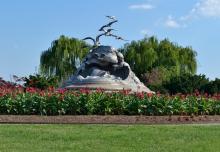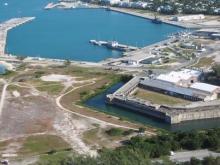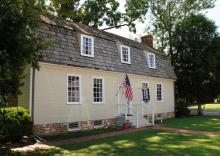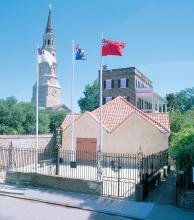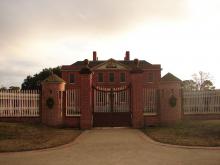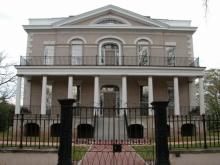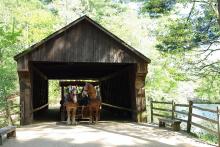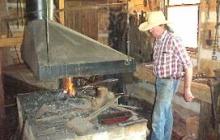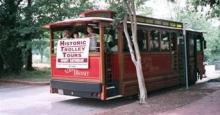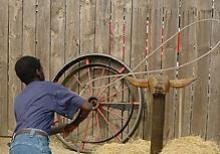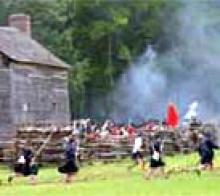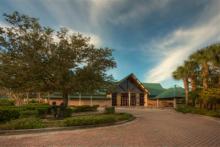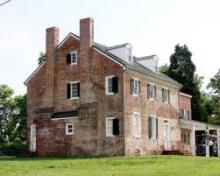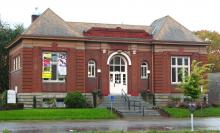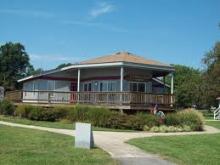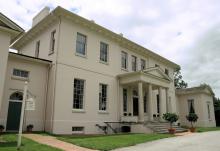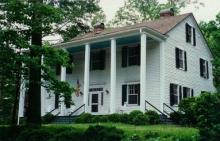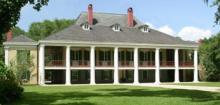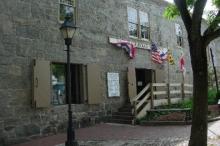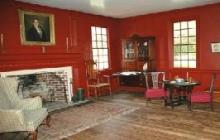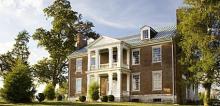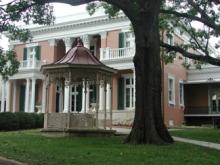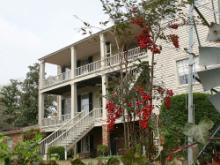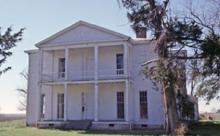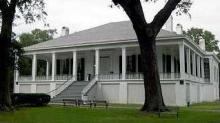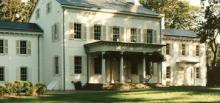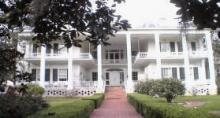Forts Folle Avoine Historical Park
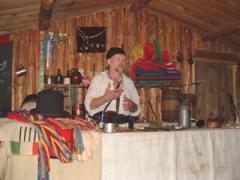
Forts Folle Avoine Historical Park is located on 80 wooded acres along the Yellow River near Danbury, Wisconsin. The park is a living history site where reconstructed fur trade posts occupy the actual sites where they were once operated from 1802 to 1805, alongside an authentic Woodland Indian Village. A National Register of Historic Places Site, the park is operated by the Burnett County Historical Society. The park's archeology displays, maps and fur trade artifacts paint a picture of life along the Yellow River two hundred years ago.
The North West Company arrived first in 1802 and built a trading post, two cabins, and a palisade fence. They established trading relations with the nearby Ojibwe and were soon joined by the XY Company, which erected one Trading post building. After three years of trading, the two companies disappeared down the Yellow River. The trading site was discovered in 1969. Archaeologists from the Wisconsin State Historical Society studied the site and retrieved artifacts during summer work in the late 1970’s and early 1980’s. Based on this archaeological evidence the fur trade posts were reconstructed by the Burnett County Historical Society. Many items collected from the dig are in our museum collection.
Along side the fur trading posts is an authentic recreation of a Woodland Indian village. Although not based on archaeology, the present location of the Indian Village is an accurate reflection of the close relationship that existed between the European fur traders and their Native American trading partners. Visitors can experience the life and culture of the earliest Native American residents. Many bands of Ojibwe, Odawa, Cree, Dakota, Fox and Sauk lived in and frequented the area for hundreds of years. Turmoil between the Ojibwe and Dakota peoples at this time in history was the primary reason for the unique placement of the trading posts. During the summer, tours of the village are conducted by authentically-dressed interpreters.
Also on site is the 1887 Karlsborg School.

